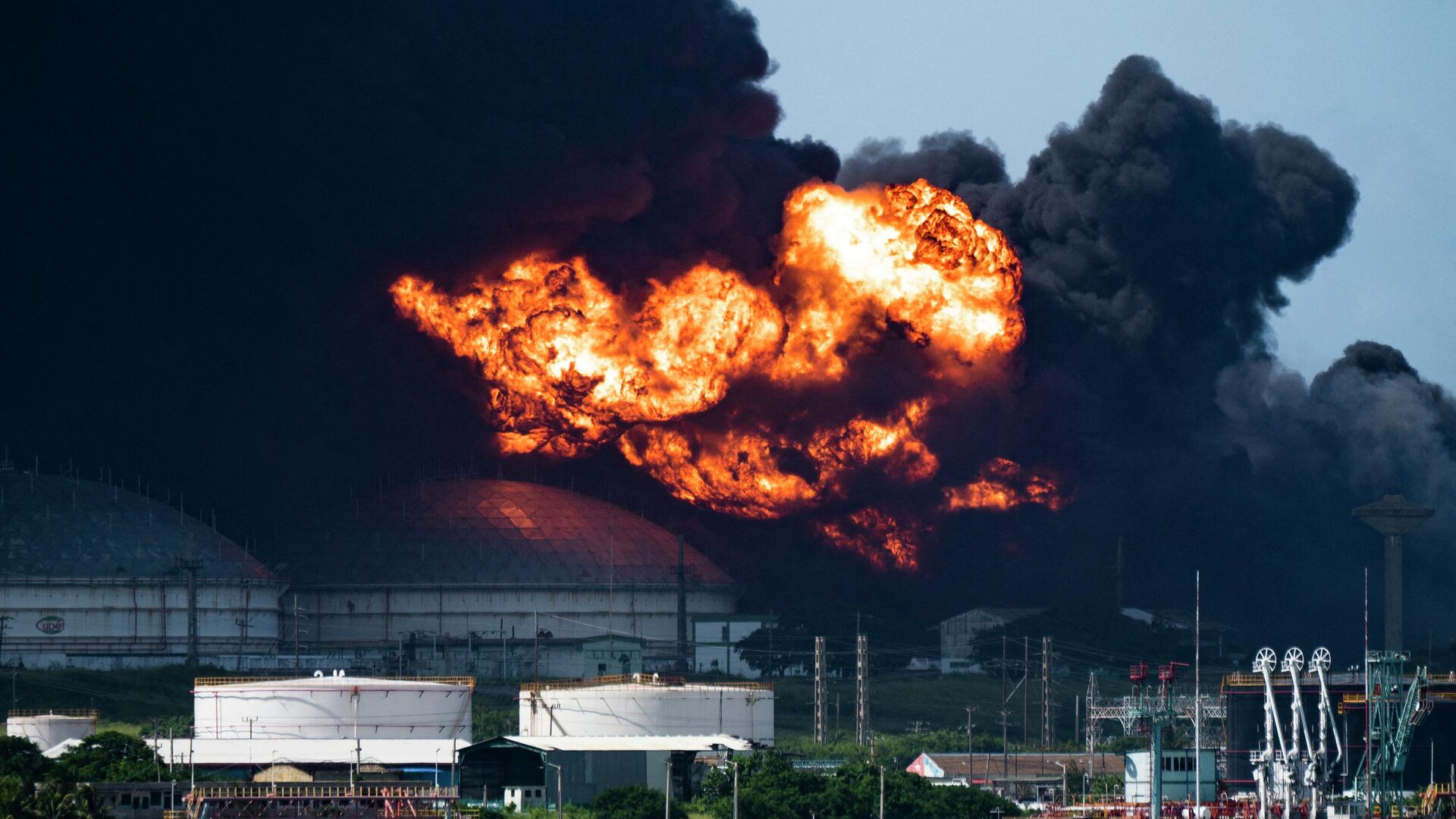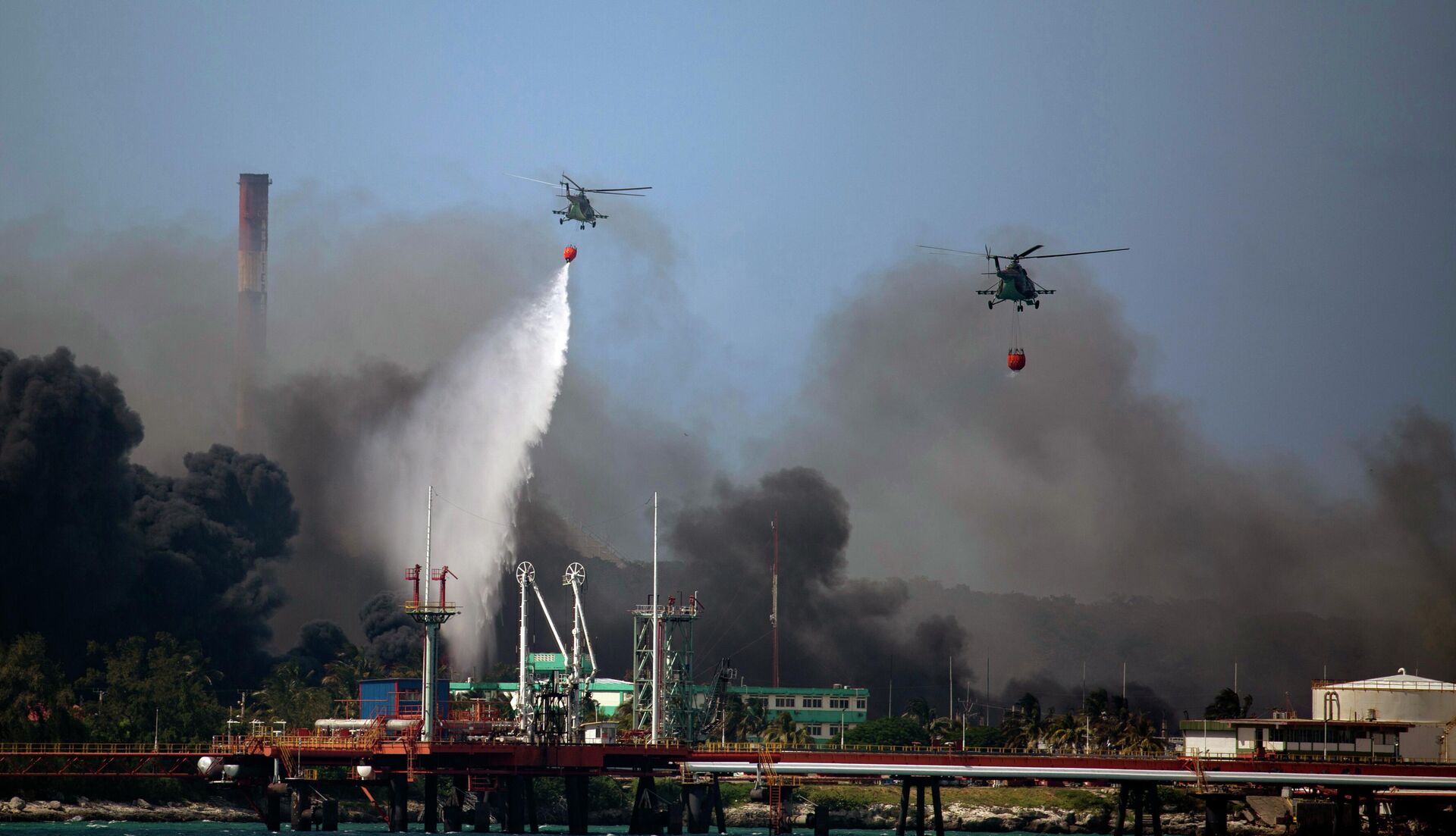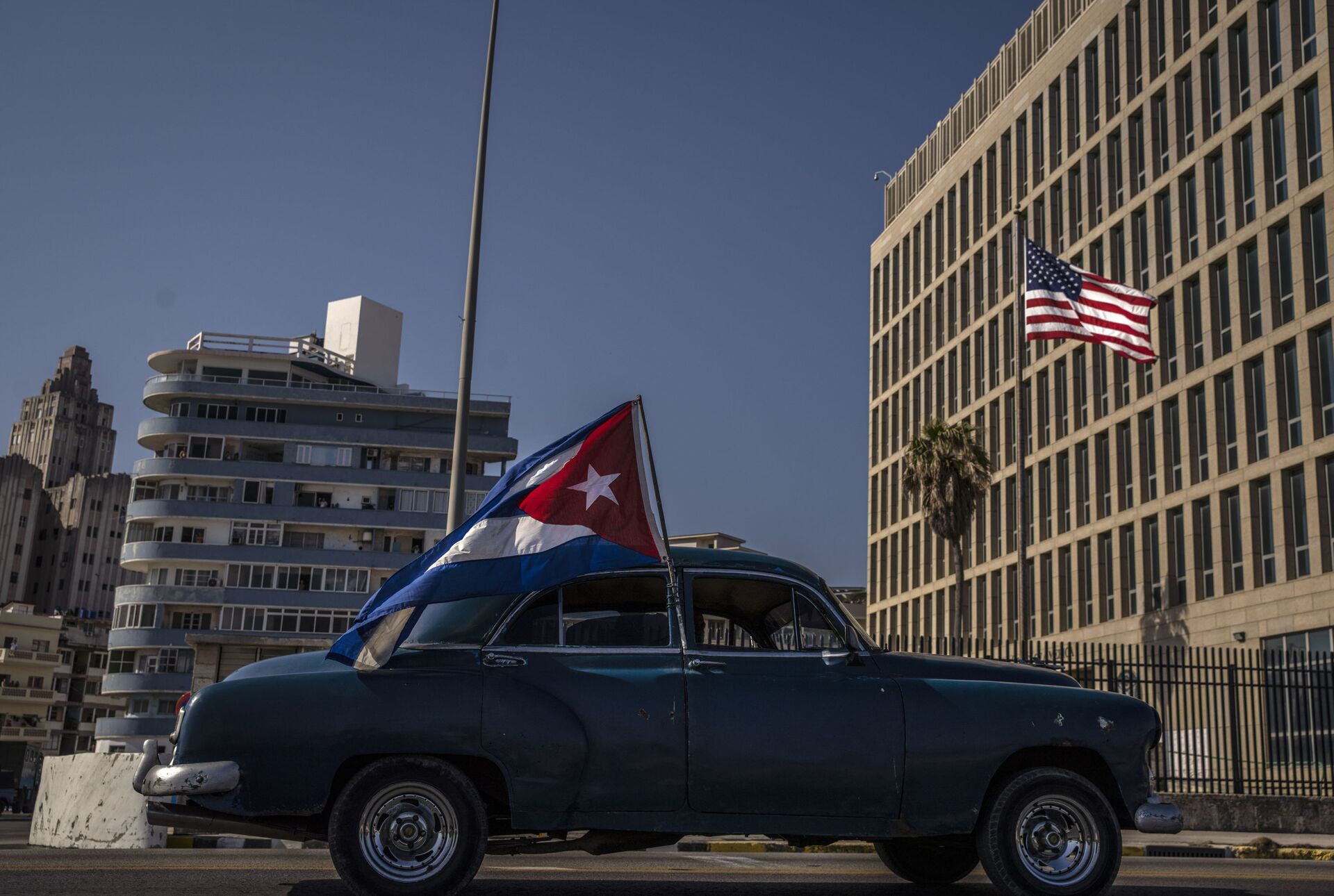‘Sanctions Fuel the Fire’: US Activists Ask Biden to Drop the Blockade & Help Cuba With Oil Blaze

© AFP 2023 / YAMIL LAGE
Subscribe
US sanctions have created chronic shortages of basic goods in Cuba, including fuel for vehicles and electricity, causing brownouts. Those power shortages have been used by US-coordinated dissident groups to provoke anti-government protests, which the US then uses to justify further sanctions.
A group of activists is pressuring the Biden administration to lower sanctions against Cuba and send substantial help to tame the fire raging at the Matanzas supertanker offloading facility.
“When your neighbor’s house is on fire, the normal human reaction is to rush next door to help,” the New York-based People’s Forum wrote on Twitter on Tuesday. “Biden can help Cuba right NOW by lifting sanctions and sending material aid.”
When your neighbor’s house is on fire, the normal human reaction is to rush next door to help. Biden can help Cuba right NOW by lifting sanctions and sending material aid.
— The People's Forum #LetCubaLive #FuerzaMatanzas (@PeoplesForumNYC) August 9, 2022
Take action with us at https://t.co/4rnlkebqn4#SanctionsFueltheFire #LetCubaLive pic.twitter.com/PbsTusncdo
The fire in question was ignited during a lightning storm on August 5 at the Matanzas Supertanker Base, Cuba’s primary offloading and storage facility for petroleum shipped to the island. The massive fire has since enveloped three more oil storage tanks, sparking a series of explosions that have killed one person, injured 125, and left another 14 people unaccounted for.
Mexico and Venezuela have sent firefighters and other equipment to help Cuban authorities tame the blaze, and the US has sent a token amount of “technical guidance” of an unspecified type. Argentina, Chile, Nicaragua, and Russia have also offered Havana help.
The fire has already begun impacting Cuba’s electricity network, with the Antonio Guiteras Thermo-Electric Plant in Matanzas being forced to shut down.
“This tragedy has also had immediate repercussions for the entire population in that province and the whole island since it affects their electricity supply and health facilities which already suffer under the weight of the US Blockade due to lack of spare parts and scarcity of medicine,” the page “Let Cuba Live,” which is organizing the pressure campaign, wrote on its website. The site includes donation links to peace group Code Pink, the Intereligious Foundation for Community Organization (IFCO) Pastors for Peace, Global Health Partners, and the Hatuey Project, a Cuba solidarity group.
“The United States loses nothing by being a good neighbor and lifting the 243 sanctions that prevent Cuba from recovering fully from this tragic moment. The Biden Administration can do more than just offer technical advice. It can immediately remove Cuba from the State Sponsors of Terrorism List with the stroke of a pen and send material aid to the island,” they added.

Вертолеты тушат горящие резервуары с нефтью на кубинской базе Matanzas Supertanker
© AP Photo / Ismael Francisco
243 Coercive Sanctions
Last year, the People’s Forum sponsored a full-page ad in the New York Times featuring a letter to US President Joe Biden, signed by more than 400 prominent academics, politicians, clergy, and ex-heads of state, urging Biden to drop the 243 sanctions imposed by his predecessor, former US President Donald Trump.
Under Trump’s predecessor, Barack Obama, the US made greater moves to normalize relations with Cuba than any US administration since the 1959 Cuban Revolution that threw out the US-backed dictator, Fulgencio Batista. Trade and travel reached new heights and the embassies in Washington and Havana reopened. However, Trump reversed much of that trend as his right-wing government made an all-out push to overthrow the government of Venezuela, a key Cuban ally, and punished Havana for its unwavering support of Caracas during the crisis.
The most heinous of those coercive measures was adding Cuba to the US State Department’s list of state sponsors of terrorism, a punishment for continuing to shelter militant leaders from the Colombian National Liberation Army (ELN) who had traveled there in good faith for peace talks with the Colombian government. When Bogota launched a new surprise attack on the ELN bases during the talks, the delegates stayed in Cuba for safety reasons.

A classic American car flying a Cuban flag drives past the American embassy during a rally calling for the end of the US blockade against the island nation, in Havana, Cuba, Sunday, March 28, 2021.
© AP Photo / Ramon Espinosa
Those sanctions have also made petroleum a precious commodity on the island. Havana once obtained the fuel from Venezuela as compensation for thousands of Cuban doctors providing essential services and training for Venezuelans, but US sanctions choked off that supply in an effort to end Venezuelan exports and crash its economy, and fuel rationing became common in Cuba, as did brownouts. The demonstrations in July 2021, which the US attempted to exploit and turn into an anti-government movement, were initially sparked by brownouts due to electricity being rerouted to hospitals to keep ventilators powered for COVID-19 patients.
The vast majority of the world stands against the US blockade, which has affected the lives of every Cuban by causing acute shortages of basic necessities. Every year since 1992, the United Nations has voted overwhelmingly to condemn the blockade. On June 23, 2021, the latest vote saw 184 nations vote against the blockade, with just the US and Israel voting in support of it.

